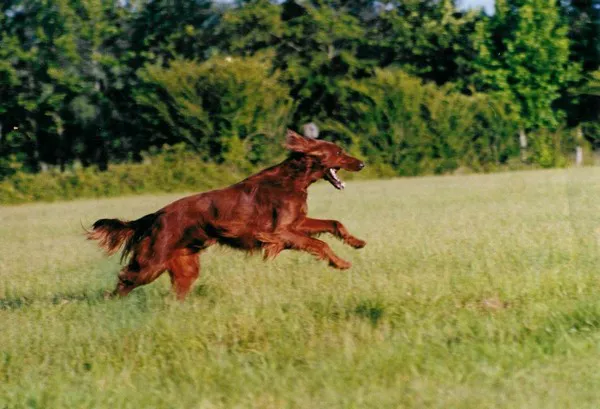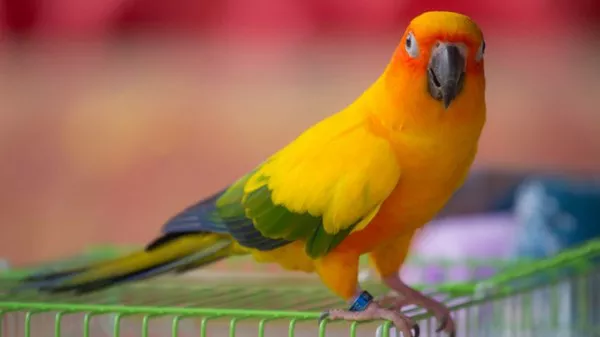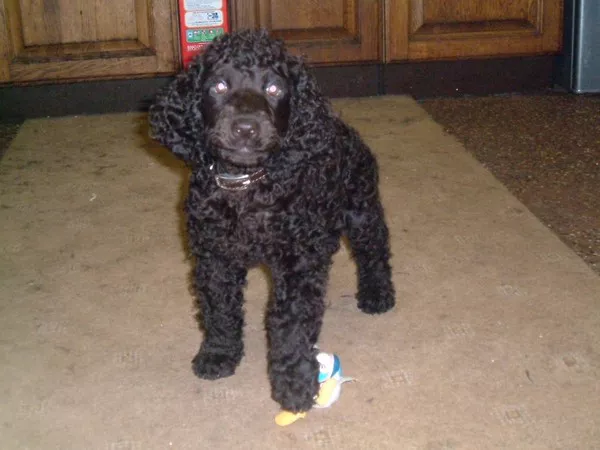Pitbulls are often misunderstood dogs due to their powerful physique and reputation in the media. However, they are also loving, loyal, and affectionate companions for the right owner. The term “Pocket Pitbull” has emerged in recent years as a way to describe a specific size variation of the American Pit Bull Terrier. While they share many characteristics with standard Pitbulls, Pocket Pitbulls are known for their smaller size. This article will provide an in-depth look at what Pocket Pitbulls are, their characteristics, behavior, health, and what potential owners need to know before adopting one.
Understanding the Pitbull: A Brief Overview
Before diving into the specifics of the Pocket Pitbull, it’s important to understand the general characteristics of the Pitbull breed. The term “Pitbull” often refers to several breeds, including the American Pit Bull Terrier, the American Staffordshire Terrier, the American Bulldog, and the Staffordshire Bull Terrier. In this article, when we refer to a Pitbull, we are primarily discussing the American Pit Bull Terrier, as it is the breed from which Pocket Pitbulls are derived.
Key Characteristics of the American Pit Bull Terrier
Size: Standard Pitbulls are medium-sized dogs. Adult males typically weigh between 35 to 60 pounds, while females are slightly smaller, typically ranging between 30 to 50 pounds.
Coat: They have short, smooth coats that are relatively easy to maintain. Their coats come in a variety of colors and patterns, including solid colors, patches, and brindle.
Temperament: Pitbulls are known for their loyalty, intelligence, and high energy levels. They are often affectionate with their family members, including children, and are good with other pets when properly socialized. However, their strong prey drive means they may not always get along with small animals like rabbits or cats.
Exercise Needs: Pitbulls are active dogs that require regular exercise. Without proper physical and mental stimulation, they can become bored and potentially destructive.
Trainability: They are highly trainable but can also be stubborn at times. Positive reinforcement methods work best when training a Pitbull.
Now that we have a general idea of the breed’s characteristics, let’s explore the unique variation that is the Pocket Pitbull.
What is a Pocket Pitbull?
A Pocket Pitbull is a smaller version of the American Pit Bull Terrier. While they are genetically similar to regular Pitbulls, they are bred to be compact, muscular, and stocky dogs with a height range of 14 to 17 inches (35 to 43 cm) at the shoulder. They typically weigh between 20 to 35 pounds (9 to 16 kg), which is about 10 to 20 pounds less than the standard Pitbull.
The term “pocket” in this context refers to the dog’s small stature, not its personality or temperament. Despite their smaller size, Pocket Pitbulls retain the athletic build, strength, and tenacity that Pitbulls are known for. Their appearance can be deceiving because their muscular bodies often make them look larger than they actually are.
How Are Pocket Pitbulls Different From Regular Pitbulls?
The primary difference between Pocket Pitbulls and regular Pitbulls is their size. Here are some key differences between the two:
Size and Weight:
Standard Pitbulls: Males are usually between 18 to 21 inches (45 to 53 cm) tall at the shoulder, and females are typically 17 to 20 inches (43 to 51 cm).
Pocket Pitbulls: Males are around 14 to 17 inches (35 to 43 cm), while females are slightly smaller.
Physical Appearance:
Pocket Pitbulls are shorter and more compact than their standard counterparts but share the same muscular, athletic build. They are typically more “stocky” and dense due to their smaller frame.
Energy Levels:
While both types of Pitbulls are energetic, Pocket Pitbulls tend to have slightly higher energy levels relative to their size. However, they still require ample exercise to stay healthy and happy.
Life Span:
Pocket Pitbulls have a similar life expectancy to regular Pitbulls, typically ranging from 12 to 16 years. A healthy diet, exercise, and regular veterinary care can help ensure a long life for both types.
Temperament:
Pocket Pitbulls share the same temperament traits as standard Pitbulls. They are known for their loyalty, protectiveness, and affectionate nature. However, due to their smaller size, they may exhibit more agility and speed in certain situations.
Origin of the Pocket Pitbull
The Pocket Pitbull is not a recognized breed by major kennel clubs like the American Kennel Club (AKC). Instead, it is a size variation of the American Pit Bull Terrier that has been selectively bred over the years. The Pocket Pitbull was initially bred by crossbreeding standard Pitbulls with smaller dogs like the Patterdale Terrier or the American Staffordshire Terrier, which helped reduce the overall size of the offspring.
In some cases, breeders intentionally select smaller, more compact Pitbulls to produce the next generation of Pocket Pitbulls. The goal is to create a dog with the same temperament, muscle tone, and working abilities as a standard Pitbull, but in a more manageable size for those who may have limited space or prefer a smaller dog.
Health Considerations for Pocket Pitbulls
Although the Pocket Pitbull is a unique and beloved variation of the American Pit Bull Terrier, it’s important to remember that it is still a Pitbull at its core, which means it shares many of the health concerns of the larger breed. Some of the common health issues that both standard and Pocket Pitbulls may face include:
Hip Dysplasia:
Hip dysplasia is a genetic condition where the hip joint doesn’t develop properly, which can lead to arthritis and pain. Regular veterinary checkups, maintaining a healthy weight, and providing appropriate exercise can help manage the risk.
Allergies:
Like many dogs, Pocket Pitbulls may suffer from food allergies, environmental allergies, or skin conditions. Managing allergies may require dietary changes or medication from a veterinarian.
Cardiomyopathy:
Cardiomyopathy refers to diseases of the heart muscle that can affect Pitbulls, particularly as they age. Routine vet visits are essential to monitor heart health.
Skin Issues:
Pocket Pitbulls can be prone to skin infections or hot spots due to their short coats and active lifestyles. Regular grooming and good hygiene can prevent some of these conditions.
Ear Infections:
Pitbulls have floppy ears, which can trap moisture and lead to infections. Regular ear cleaning and inspection can help prevent this problem.
Obesity:
Like all dogs, Pocket Pitbulls are susceptible to obesity if they are not given proper exercise and are overfed. Maintaining an active lifestyle and feeding them a balanced diet is critical to preventing obesity-related issues.
Training and Exercise Needs
As with any Pitbull, training and exercise are key components of keeping a Pocket Pitbull happy and healthy. These dogs are highly energetic, intelligent, and eager to please, but they can also be stubborn and independent at times.
Training:
Positive reinforcement is the most effective method for training a Pocket Pitbull. They respond well to praise, treats, and affection, and harsh training methods can lead to behavioral issues. Consistency and patience are key when training any Pitbull, especially when teaching them basic commands or addressing unwanted behaviors.
Socialization is equally important, especially for Pocket Pitbulls that might be more territorial or protective due to their compact size. Exposing your dog to different environments, people, and other dogs from a young age can help them become well-rounded and confident pets.
Exercise:
While Pocket Pitbulls are smaller, they still need a significant amount of exercise to burn off their high energy. A lack of physical activity can result in behavioral problems such as digging, excessive barking, or destructive chewing.
Activities like daily walks, runs, fetch, or agility training are great ways to provide the mental and physical stimulation that your Pocket Pitbull needs. Interactive toys and puzzle feeders can also help engage their minds when you’re indoors.
Living with a Pocket Pitbull
Pocket Pitbulls make excellent companions for active individuals or families who can provide them with the attention, exercise, and training they need. They are loyal, affectionate, and protective, but their small size allows them to adapt well to apartment living or smaller homes compared to standard Pitbulls. However, prospective owners should keep in mind that these dogs still need space to run and play, and they should not be confined to small areas for long periods of time.
Pocket Pitbulls and Children
Pocket Pitbulls are often excellent family pets and are generally good with children, especially when they have been properly socialized. However, as with all dogs, supervision around young children is essential. Due to their strength and high energy, they may unintentionally knock over small children while playing. Teaching both the dog and the children how to behave around each other can lead to a positive relationship.
Pocket Pitbulls and Other Pets
With proper training and early socialization, Pocket Pitbulls can coexist with other pets in the home, including dogs, cats, and even small animals. However, their prey drive may cause issues with smaller animals like rodents or birds, so it’s essential to supervise interactions and assess the temperament of your specific Pocket Pitbull.
Grooming and Care
Pocket Pitbulls have short coats that are relatively easy to maintain. Regular brushing can help remove loose hair, dirt, and debris, and it will also help keep their skin healthy. They don’t require frequent baths, but regular cleaning of their ears and teeth is important to prevent infections.
Feeding and Diet
Like all dogs, Pocket Pitbulls require a balanced diet to support their health and energy levels. Since they are smaller than standard Pitbulls, their calorie intake should be adjusted based on their size, age, and activity level. High-quality dog food with appropriate levels of protein, fat, and vitamins is essential for maintaining their muscle mass and overall health.
Conclusion
A Pocket Pitbull is a smaller version of the American Pit Bull Terrier that shares the same strong, loyal, and affectionate traits as its larger counterpart. These dogs are compact, muscular, and energetic, making them great companions for individuals or families with active lifestyles. While they have specific health, training, and exercise needs, Pocket Pitbulls can thrive in homes where they receive the proper care, attention, and exercise.
If you are considering adopting a Pocket Pitbull, be sure to research the breed thoroughly and assess whether it is a good fit for your lifestyle. These dogs can make loving, loyal, and protective pets when raised in a positive environment with proper care.
Related Topics:
























